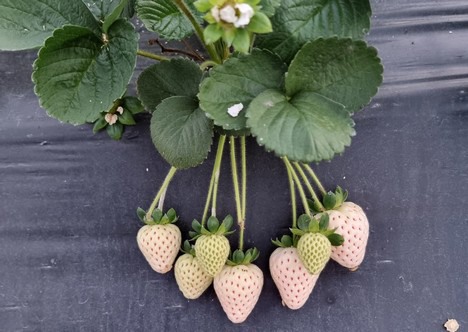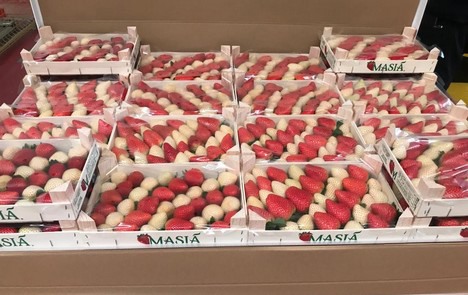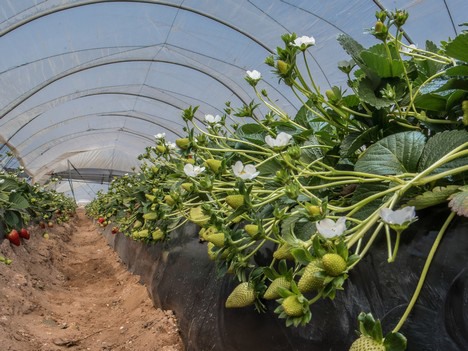A new berry has started to be harvested in Huelva and has soon become one of the protagonists of the current berry campaign, given the amount of attention it is receiving. It is the white strawberry, also known as pineberry, highly demanded and highly appreciated in Japan, although it can already be found in the markets of Madrid.

"We are still surprised by the huge amount of interest that our white strawberries have sparked, following a post in our social networks. It's crazy!", says Carlos Masiá, marketing director of the Huelva-based company Masiá Ciscar, which, as a test, has planted half a hectare of Florida Pearl, as this variety is known, and they are marketing it for the first time this year, with great success. I don't know if we are the first to have planted this variety in Huelva, but we are the first to have commercial volumes available."
"We like to innovate constantly for our customers. Although white strawberries have been around for years, we recently saw the opportunity to open a line of business in the gourmet segment. Although what is most striking is its white color, given the lack of pigmentation in its pulp, it is a very juicy fruit, with a smooth texture and a flavor that for some has hints of pineapple," says Carlos Masiá.

At the agronomic level, white strawberries are less productive than conventional red strawberries, with fewer grams per plant, according to the grower and marketer. Their skin is also more sensitive to rubbing and bruises, which are more noticeable because of their white color. At the moment, we are cultivating it in a similar way to conventional strawberries, although we have realized that it is more delicate.
In these early stages of the season, Masiá Ciscar is selling white strawberries on the domestic market, mainly in wholesale markets that supply gourmet food stores and, to a lesser extent, the catering and hospitality channel. Their prices are higher than those of conventional strawberries. "We see that the Spanish consumer is very receptive to new products with added value. There are already supermarket chains that are asking us for this strawberry on a trial basis. Although for the time being we are only selling it in the domestic market, from this month on we will have greater volumes and we will also try to export. We are very happy and, if it works out as we hope, next year we will try to expand the acreage.
Increasing commitment to the first part of the season thanks to new premium early varieties
Masiá Ciscar has its own R&D center where it develops its own varieties of strawberries and other berries. One of the latest additions is its early strawberry variety Palmeritas.
"We are very happy with the performance of this variety, which is of premium quality and for which we are obtaining prices above the market average in this first part of the campaign. We now have many premium lines with varieties such as the Leyre, catalogued as 'extra sweet', in markets such as the UK, among others," says Carlos Masiá.

"We see that, like in our case, there is a tendency to invest in early varieties, since what happens with the European productions has a big impact on us after the start of spring. We are working on a new early variety that, at the moment, is in our trial fields and will surely be ready to be launched next season. It looks very good; in fact, it could be even better than the Palmeritas," he says.
At the moment, strawberry prices are holding up well. "As of this month, volumes are starting to rise, although the cold weather has slowed the production down a little," says Carlos Masiá. Approximately 50% of their sales are intended for the domestic market. The rest is exported to central and northern European countries, mostly.
"We strive to offer a sustainable product. 100% of our production is protected with biological control, through the release of predatory insects for pest control. This way, our customers can be guaranteed to obtain a residue-free and environmentally friendly product. For this same reason, in a few weeks our energy will come from solar panels," says Masiá.
For more information:
Carlos Masiá
Masiá Ciscar
Ctra. de La Redondela, Km 1,2
PO Box 79 - 21440 Lepe. Huelva. Spain
T: 34 959 383 301
[email protected]
www.masiaciscar.es
